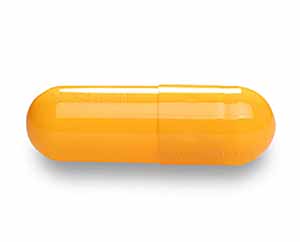- Your cart is empty
- Continue Shopping
Product
SLIMEX
$31.64 – $536.26
Slimex is used to treat very overweight (obese) patients who have not been able to lose weight using a low calorie diet and exercise. Slimex does not work in the same way as traditional appetite suppressants. It works by altering the level of two chemicals in the brain, serotonin and noradrenaline, which help regulate energy intake and output.
- Canadian Pharmacy Online Pharmacy | Online Canadian Pharmacy
- Need More Information Call Us 1-833-356-6337
Product description
INDICATIONS
Slimex is used for treating obesity. It should be used with a reduced calorie diet. Slimex is a diet aid. It appears to work by regulating chemicals in the appetite center in the brain to cause a temporary reduction in hunger or craving for food.
INSTRUCTIONS
Use Slimex as directed by your doctor.
- Take Slimex by mouth with or without food.
- Unless otherwise directed by your doctor, Slimex should be taken in the morning to avoid sleeping problems.
- Take Slimex at about the same time each day.
- If you miss a dose of Slimex, skip the missed dose and go back to your regular dosing schedule. Do not take 2 doses at once.
DOSAGE
The usual dosage is one capsule taken once each day. Swallow one capsule whole every day with a glass of water. Start with the capsule marked “Begin with this capsule” on each tray, followed, on the next day, with the capsule marked with that day of the week. Continue to take one capsule daily until all the capsules in the tray have been taken. All capsules are the same. They are marked with the day of the week to help you keep track of whether you have taken your dose each day.
Ask your health care provider any questions you may have about how to use Slimex.
STORAGE
Store Slimex at 77 degrees F (25 degrees C), in a tightly closed container. Brief storage at temperatures between 59 and 86 degrees F (15 and 30 degrees C) is permitted. Store away from heat, moisture, and light. Do not store in the bathroom. Keep Slimex out of the reach of children.
MORE INFO:
Active Ingredient: Sibutramine hydrochloride.
Slimex is used to treat very overweight (obese) patients who have not been able to lose weight using a low calorie diet and exercise. For the best results Slimex should be used in combination with a calorie controlled diet and a regular exercise routine. The intent of Slimex is to assist with moderate weight loss over 6 months (5-10%) – 9 months for diabetics – when used with a diet and exercise programme. This is in accordance with modern weight-loss practice, which emphasises that moderate weight loss achieves significant health improvement. Losing even modest amounts of weight (5-10% of your initial weight) and keeping it off has been found to reduce risks for diseases such as heart disease and diabetes.
Safety information
Do NOT use Slimex if:
- you are elderly (over the age 65) or a child (under the age of 18). There is not enough experience with the use of Slimex in these groups.
- you have an allergy to Slimex or any of the ingredients listed at the end of this leaflet. Symptoms of an allergic reaction may include an itchy rash and skin blisters.
- you are or intend to become pregnant or breast-feed. Like most medicines, Slimex is not recommended for use during pregnancy or breast-feeding.
- the expiry date printed on the pack has passed.
- the packaging is torn or shows signs of tampering or if the capsules look damaged.
Some medical conditions may interact with Slimex. Tell your doctor or pharmacist if you have any medical conditions, especially if any of the following apply to you:
- You have an eating disorder such as anorexia nervosa or bulimia nervosa.
- Your overweight or obesity is due to a disease.
- You have a psychiatric or mental illness, eg bipolar disease (manic-depression).
- You have hyperthyroidism (i.e. an overactive thyroid gland).
- You have high blood pressure not controlled by drugs.
- You have severe liver or kidney disease.
- You have heart disease caused by poor blood flow in the blood vessels of the heart (e.g. angina).
- You have disease of the heart with shortness of breath, and swelling of the feet or legs due to fluid build up.
- You have changes in heart rate (fast, slow or irregular).
- You have had a stroke.
- You have a swelling of the prostate gland that makes it difficult to pass urine.
- You have a tumour of the adrenal gland, which sits near the kidney.
- You have narrow angle glaucoma. A condition in which the pressure of fluid in the eye may be high.
- You have a history of drug, medication or alcohol abuse.
- You suffer from Gilles de la Tourette’s syndrome.
- You have had seizures (epilepsy or convulsions).
Do not use Slimex if you are taking one of the following medications:
- You are taking any medicine for depression. Check with your doctor or pharmacist if you are unsure as to whether or not you are taking an antidepressant.
- You are taking another medicine to lose weight. This includes over-the-counter medicines or herbal products.
- You are taking a medicine that affects your alertness (i.e. keeps you awake or makes you sleepy) e.g. tranquillisers, antidepressants or tryptophan.
Important safety information:
- Slimex may cause dizziness or blurred vision. These effects may be worse if you take it with alcohol or certain medicines. Use Slimex with caution. Do not drive or perform other possibly unsafe tasks until you know how you react to it.
- Do not drink alcohol or use medicines that may cause drowsiness (eg, sleep aids, muscle relaxers) while you are using Slimex; it may add to their effects. Ask your pharmacist if you have questions about which medicines may cause drowsiness.
- Changes in dietary habits and increased exercise are important parts of a successful weight loss program. To maintain your ideal weight, these changes should be continued for life. Follow the guidelines given to you by your doctor or diet counselor.
- Serotonin syndrome or neuroleptic malignant syndrome (NMS)-like reactions are possibly fatal syndromes that can be caused by Slimex. Your risk may be greater if you take Slimex with certain other medicines (eg, “triptans,” MAOIs, antipsychotics [eg, aripiprazole, risperidone]). Symptoms may include agitation; confusion; hallucinations; coma; fever; fast or irregular heartbeat; tremor; excessive sweating; incoordination; rigid muscles; blood pressure changes; and nausea, vomiting, or diarrhea. Contact your doctor at once if you have any of these symptoms.
- Lab tests, including blood pressure, pulse monitoring, and weight monitoring, may be performed while you use Slimex. These tests may be used to monitor your condition or check for side effects. Be sure to keep all doctor and lab appointments.
- Use an effective method of birth control while you are taking Slimex.
- Use Slimex with caution in the elderly; they may be more sensitive to its effects.
- Slimex should not be used in children younger than 16 years old; safety and effectiveness in these children have not been confirmed.
- Pregnancy and breast-feeding: If you become pregnant, contact your doctor. You will need to discuss the benefits and risks of using Slimex while pregnant. It is not known if Slimex is found in breast milk. Do not breast-feed while taking Slimex.
When used for long periods of time or at high doses, some people develop a need to continue taking Slimex . This is known as dependence or addiction.
Side effects
All medicines may cause side effects, but many people have no, or minor, side effects.
Check with your doctor if any of these most common side effects persist or become bothersome:
Back pain; constipation; dizziness; dry mouth; flu-like symptoms; headache; increased or decreased appetite; joint pain; nausea; nervousness; painful menstruation; runny nose; sleeplessness; sore throat; upset stomach; weakness.
Seek medical attention right away if any of these severe side effects occur:
Severe allergic reactions (rash; hives; itching; difficulty breathing; tightness in the chest; swelling of the mouth, face, lips, or tongue; unusual hoarseness); agitation; anxiety; blurred vision or other vision changes; change in amount of urine; chest pain; clumsiness; confusion; difficulty breathing; disorientation; excitement; eye pain; fainting; fast or irregular heartbeat; high fever; increased sweating; large, unchanging pupils; loss of consciousness; mood or mental changes (eg, depression, mania, psychosis, thoughts of suicide or suicide attempt); one-sided weakness; restlessness; seizures; severe or persistent dizziness, headache, or weakness; shivering; shortness of breath; stomach pain; swelling of the feet, ankles, or legs; tremors; unusual bruising or bleeding; vomiting.
Need More Information? Call Us Toll Free: 1-833-356-6337
| MG | 15 mg, 10 mg |
|---|---|
| Package | 10 pills, 20 pills, 30 pills, 60 pills, 90 pills, 120 pills |







